Series Classification: G (General Audiences)
<<< Previous Episode | Index | Next Episode >>>
Film Synopsis
Community-led projects are leading the charge to halt biodiversity decline, while researchers make break-throughs in ways to remove predators and prevent reinvasion.
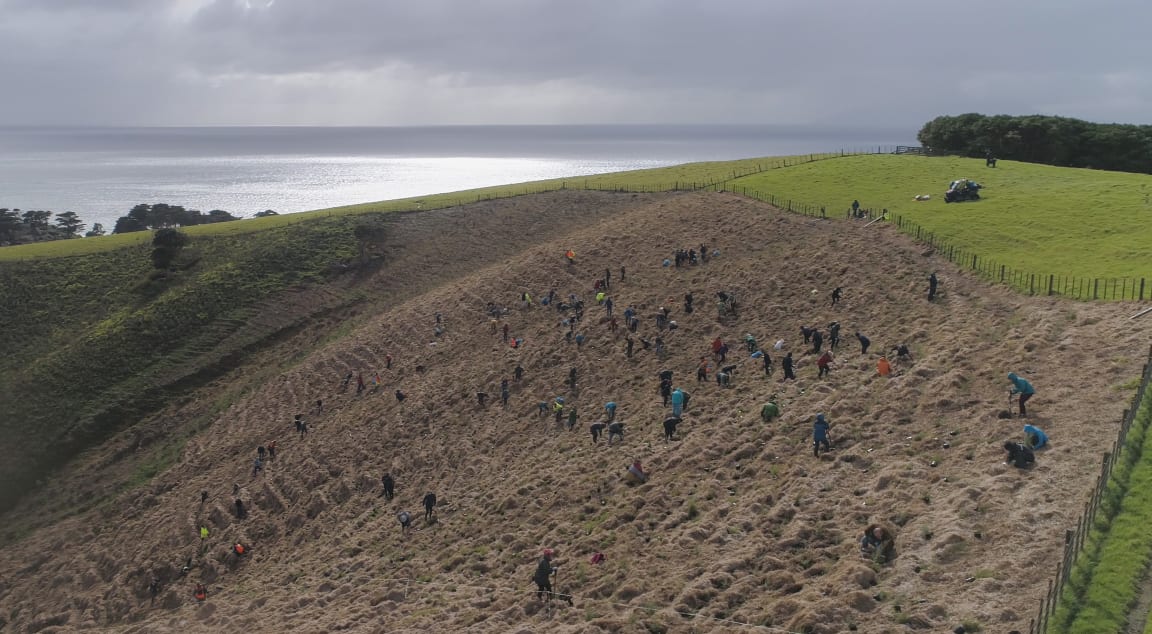
Tāwharanui Open Sanctuary planting day, north of Auckland Photo: Peter Young / Fisheye Films
While bird song is receding across New Zealand’s mainland, hundreds of community-led projects are leading the charge to turn things around. On the North Island’s East Cape the government answers the call from iwi for help to save the decimated Raukūmara Forest, and in Wellington a dedicated group of urban trappers are taking on Miramar Peninsular with the vision of achieving the world’s first predator-free capital city.
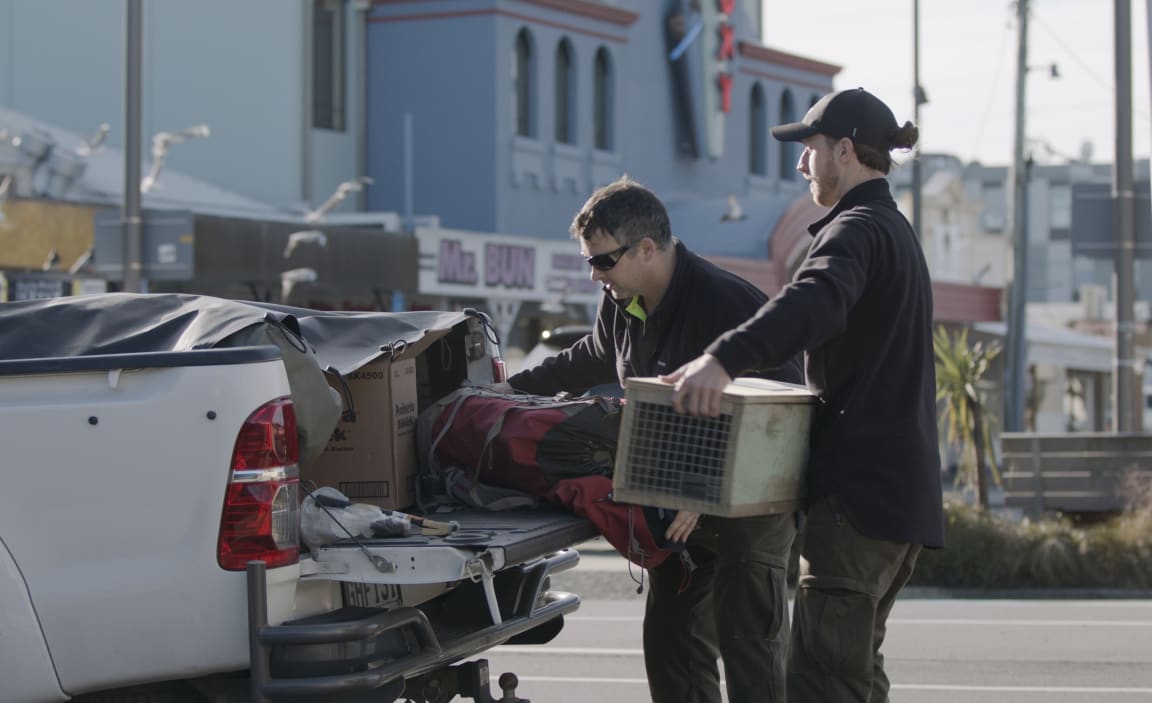
Urban trappers, Predator Free Wellington Photo: Peter Young / Fisheye Films
Kea numbers continue to decline in the South Island and in the Perth Valley, Zero Invasive Predators (ZIP) make some break-throughs in their quest to remove predators and protect borders from reinvasion.
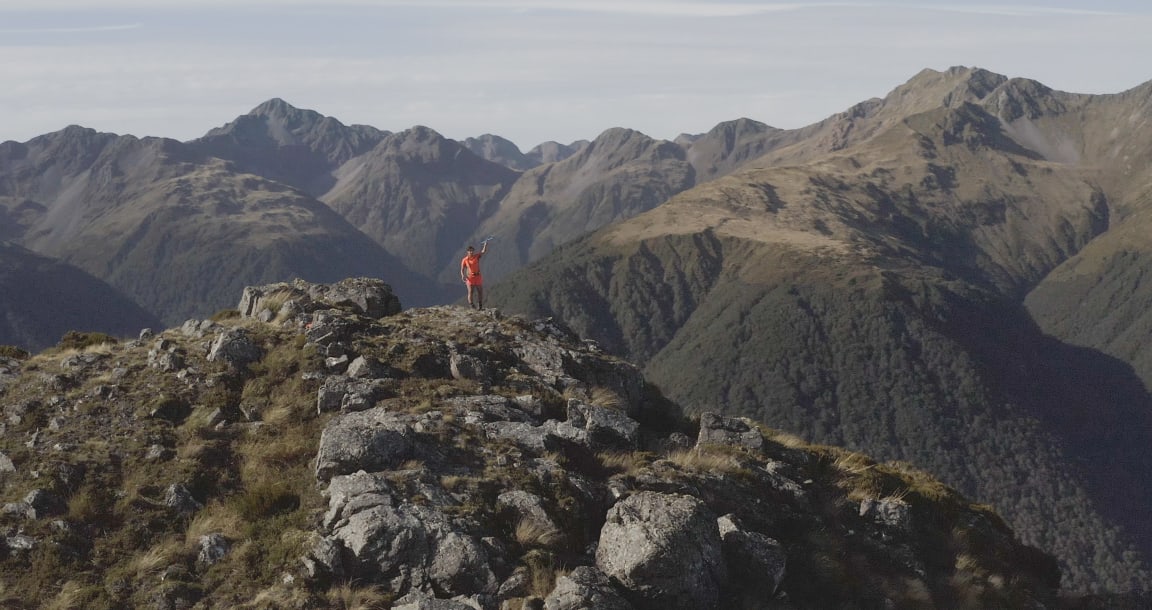
Laura Young tracks radio tagged Kea, Doubtful Valley, North Canterbury Photo: Peter Young / Fisheye Films
“By working together as backyards and communities, that gives us the opportunity to participate and it empowers us to take some ownership of the problem instead of leaving it for everybody else to deal with.” Kelvin Hastie
“When you start to see the level of activity and the intensity of activity and what's being achieved all over the country, we're all in our own little small way contributing to the Predator Free 2050.” Marguerite Vanderkolk
“I think it is a realistic goal. Years and years ago, they didn't think it was possible to eradicate rats from islands that's now done all across the world. And New Zealand's been a world leader in island eradications. New Zealand is basically one big island.” Helen Blackie
“I don't think we can overstate how important it is that community are engaged in these projects. They are the feet on the ground that bring the passion, they do the work. And I think when you're trying to make change as well, you know, communities getting together and thinking about being a movement of change is super powerful.” Abbie Reynolds
---
Podcast Synopsis
Episode Three explores the deep relationship between Māori and the natural world.
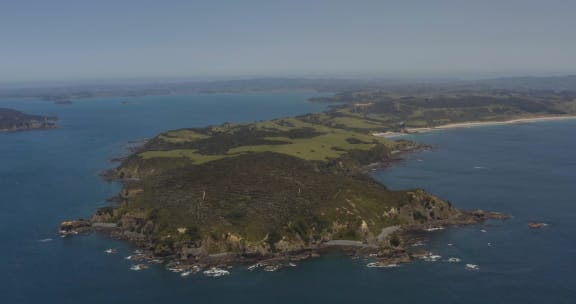
Tāwharanui Peninsula, north of Auckland Photo: Peter Young / Fisheye Films
Predator Free 2050 and Māori looks at the vital contribution of Māori towards achieving Predator Free. It begins by exploring the deep relationship between Māori and the natural world, and the ways in which the loss of biodiversity impact on the identity and well-being of Māori, and on the very culture itself.
Commentators set out their expectations around Predator Free, and we explore the chance it offers for tino rangatiratanga, and a genuine bicultural partnership. They talk too, about how, by healing Nature, people can themselves be healed.
[click here for more episodes]
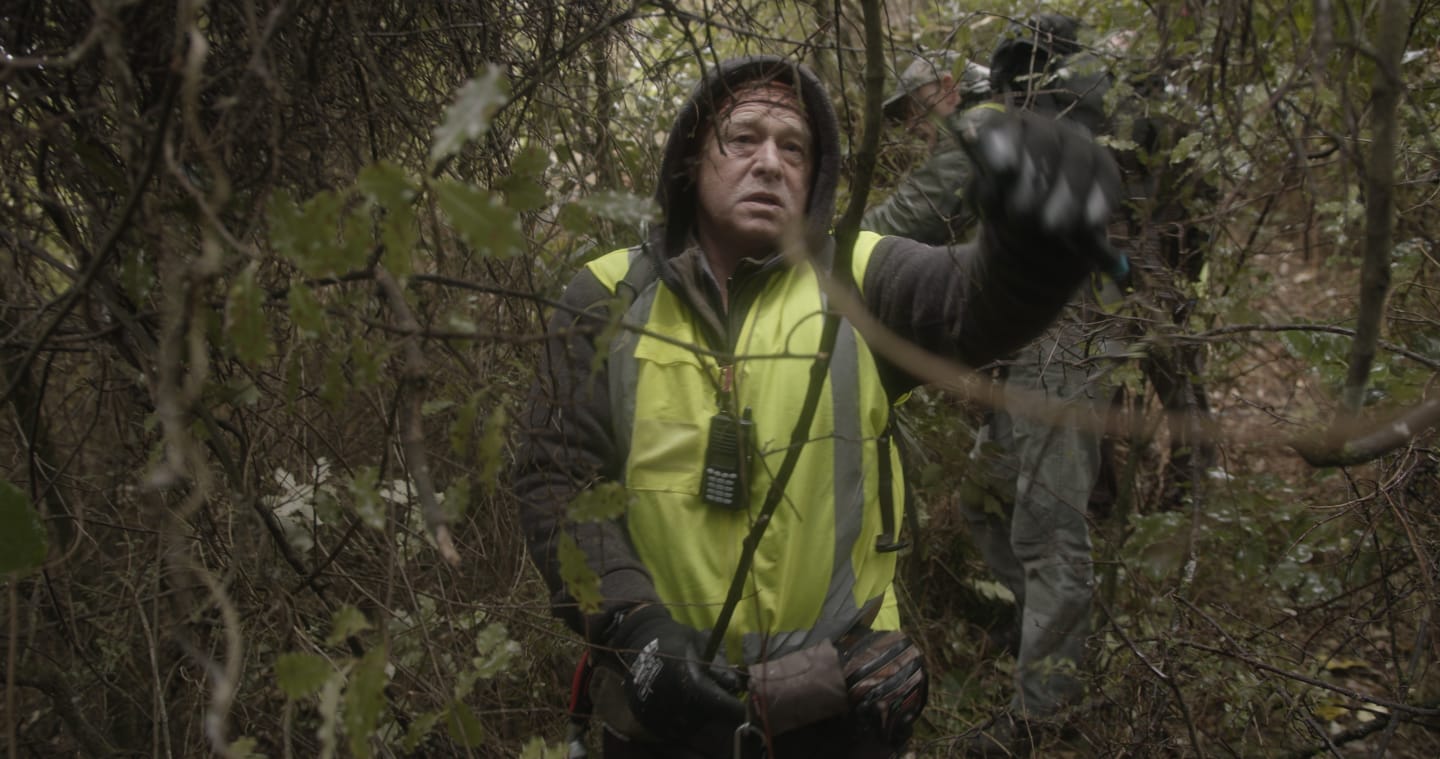
Bruce Kyle, Operations Manager, Otago Peninsula Biodiversity Group Photo: Peter Young / Fisheye Films
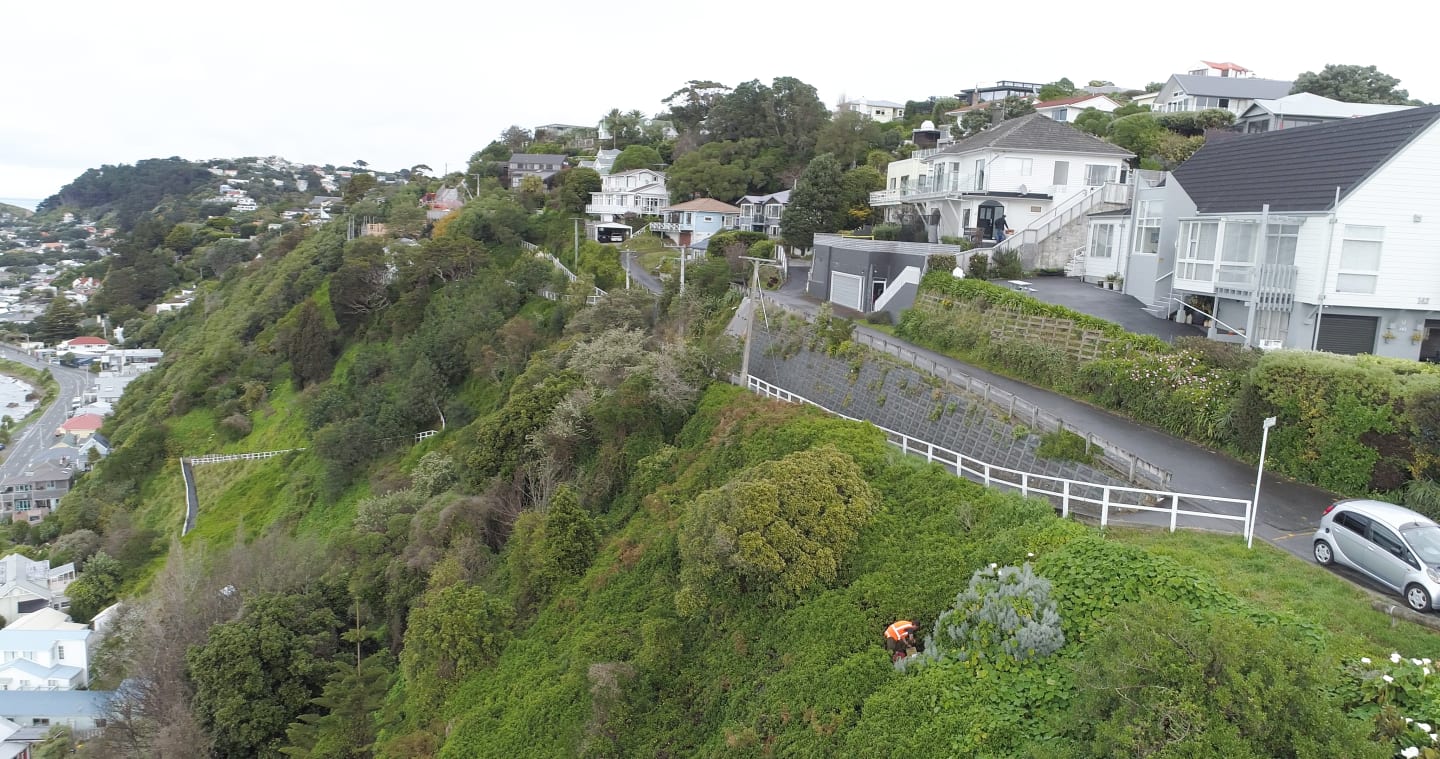
Miramar Peninsula, Wellington, urban landscape-scale predator eradication project Photo: Peter Young / Fisheye Films
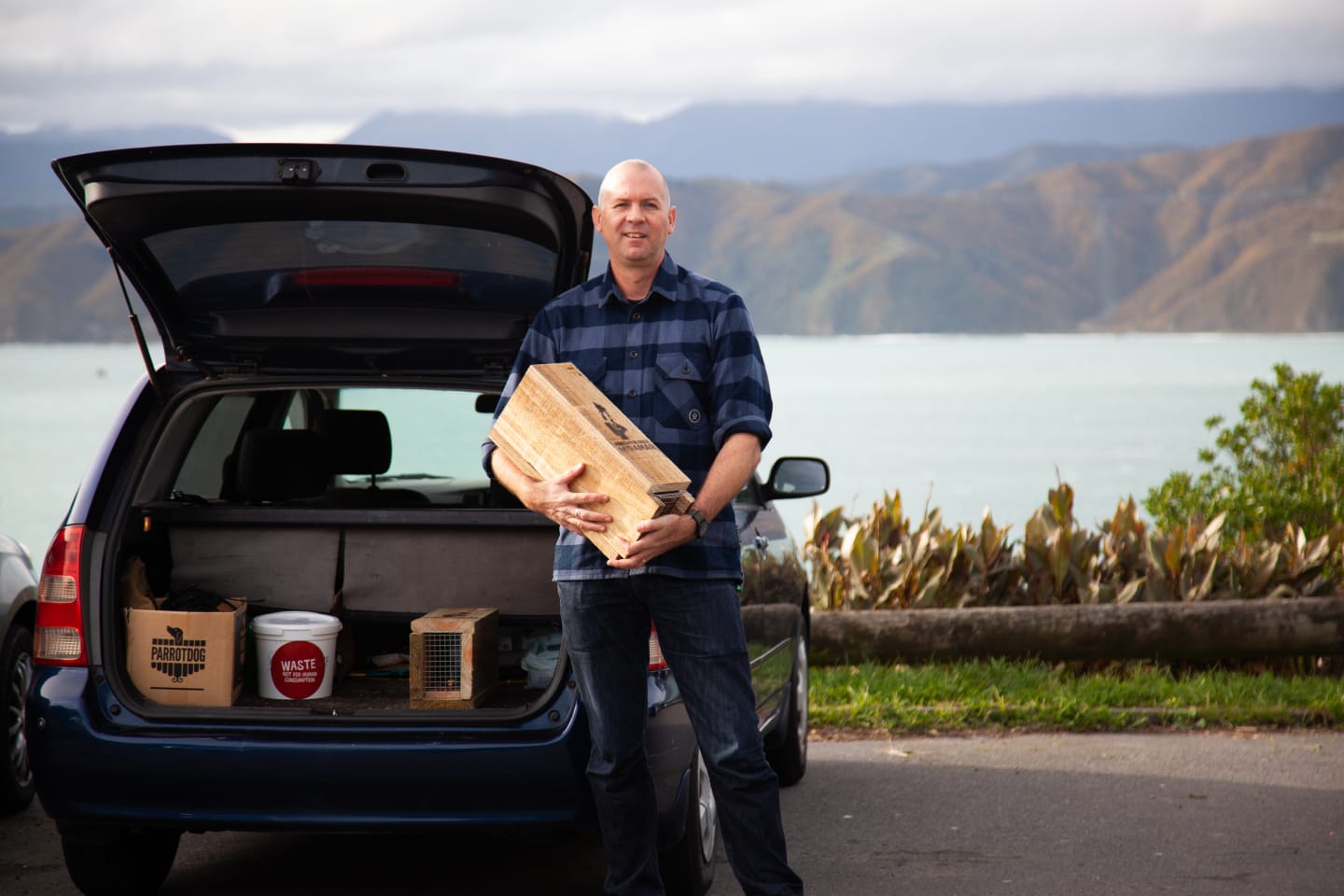
Dan Henry, Predator Free Miramar founder and dedicated trapper Photo: Peter Young / Fisheye Films
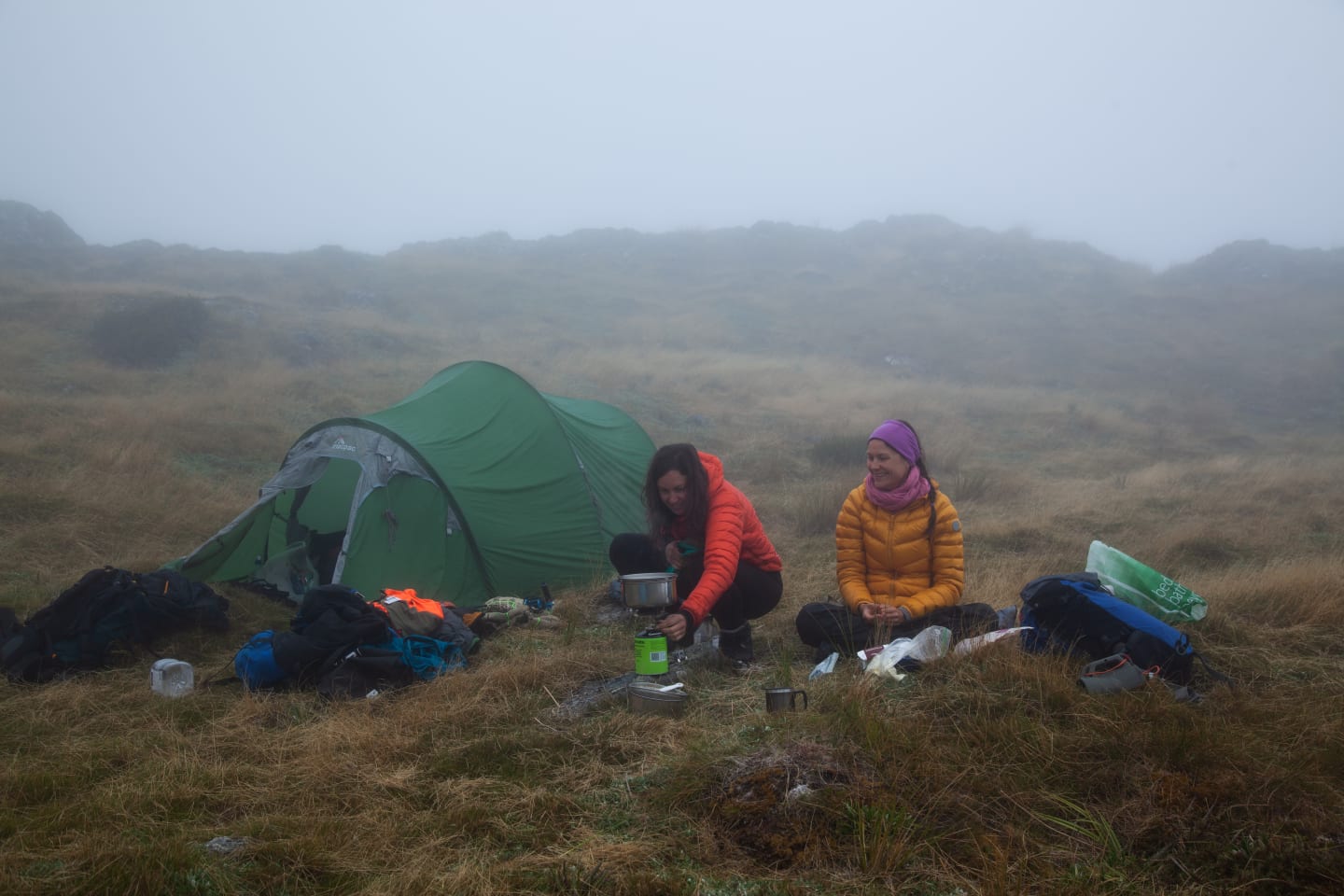
Laura Young and Lorna Deppe at alpine camp, Doubtful Valley, North Canterbury Photo: Peter Young / Fisheye Films
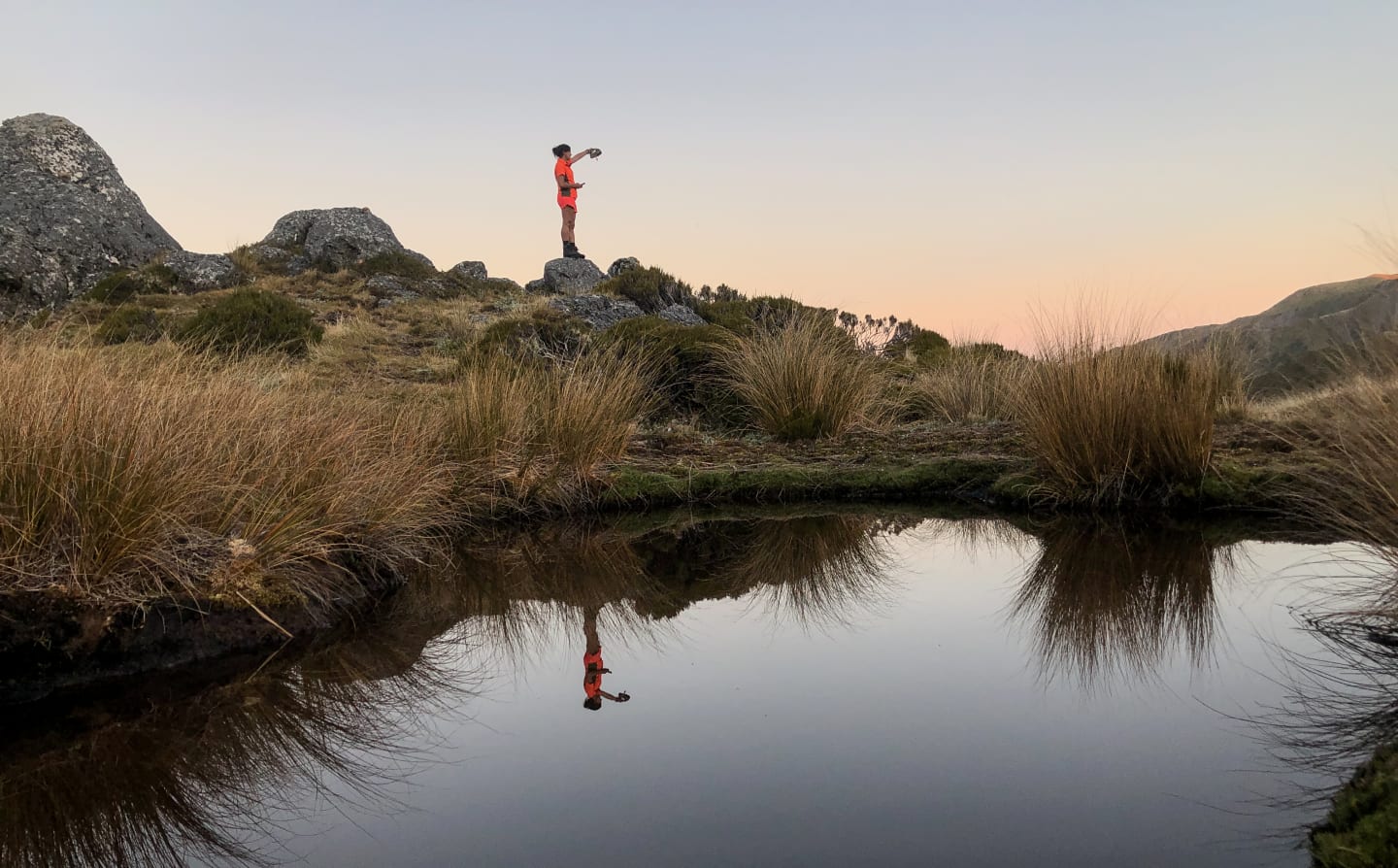
Laura Young calls in Kea, evening, Doubtful Valley, North Canterbury Photo: Peter Young / Fisheye Films
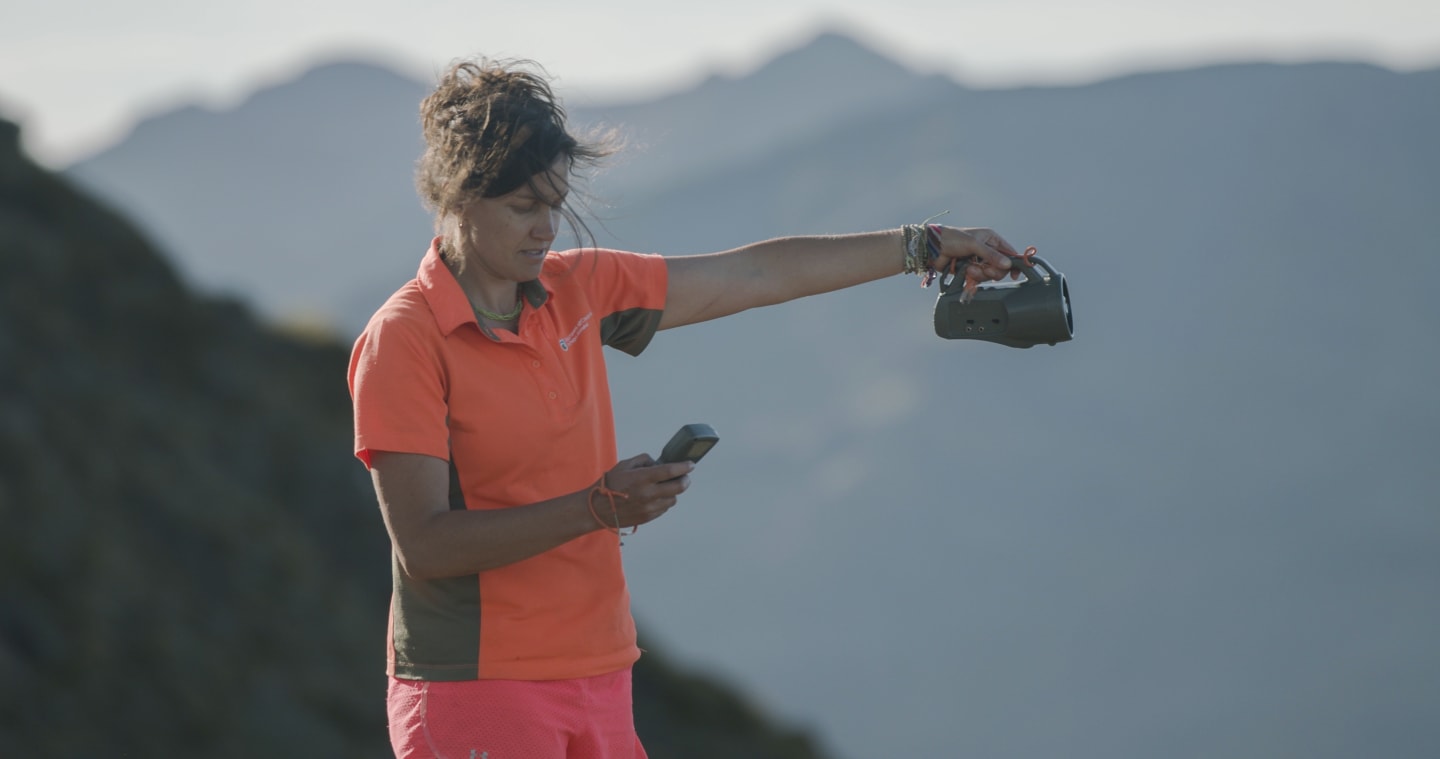
Laura Young calls in Kea, Doubtful Valley, North Canterbury Photo: Peter Young / Fisheye Films
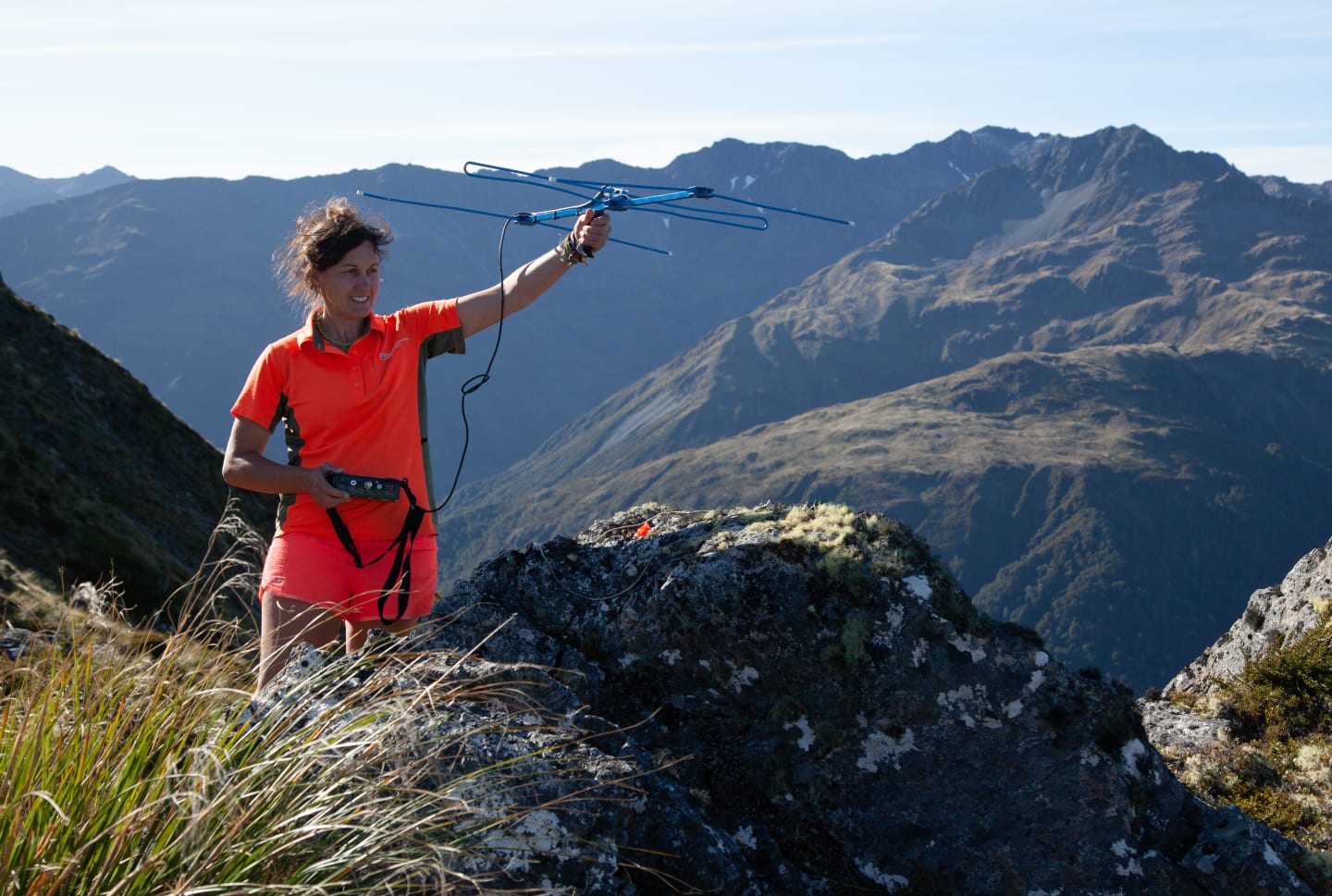
Laura Young locating declining populations of Kea in Doubtful Valley, North Canterbury Photo: Peter Young / Fisheye Films
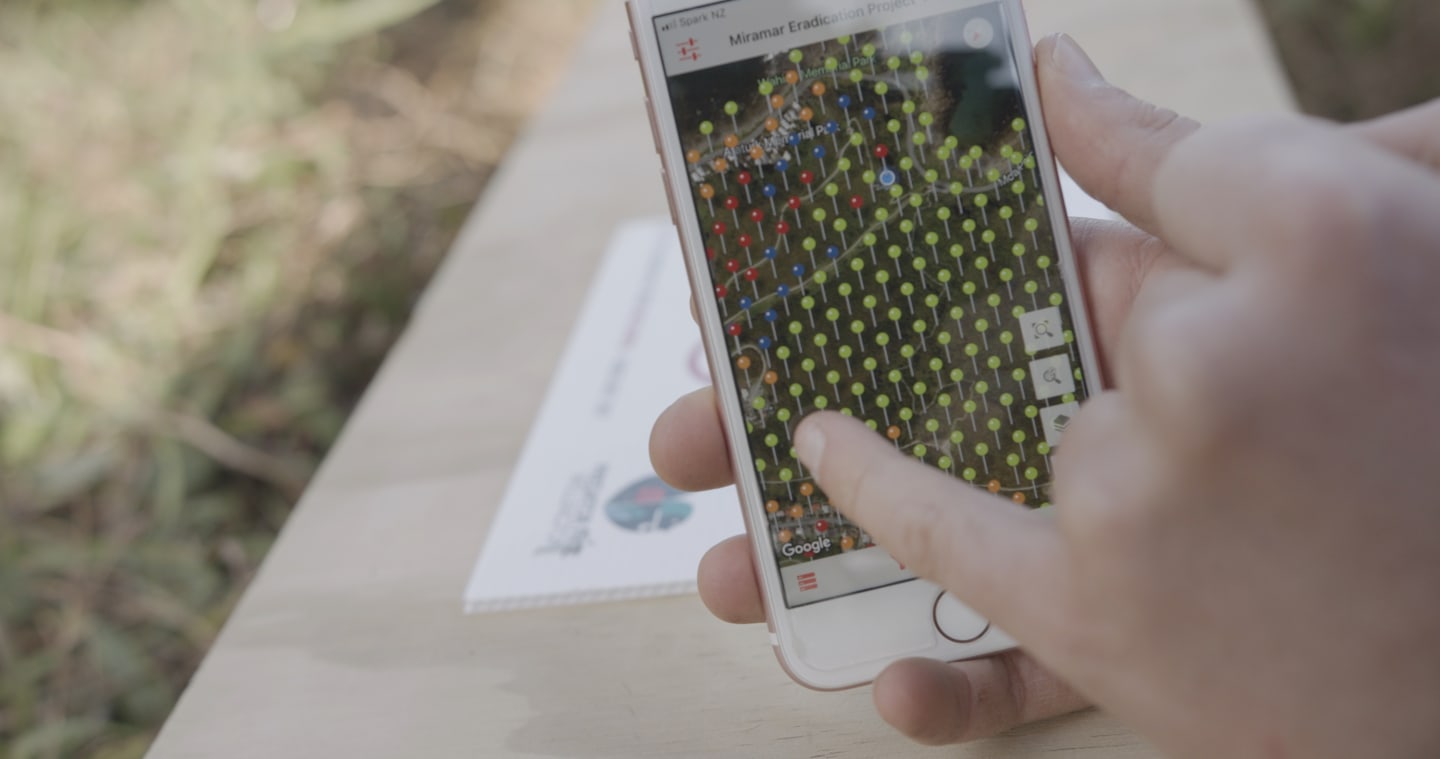
High tech software maps grid of traps for Miramar Eradication Project, Wellington Photo: Peter Young / Fisheye Films
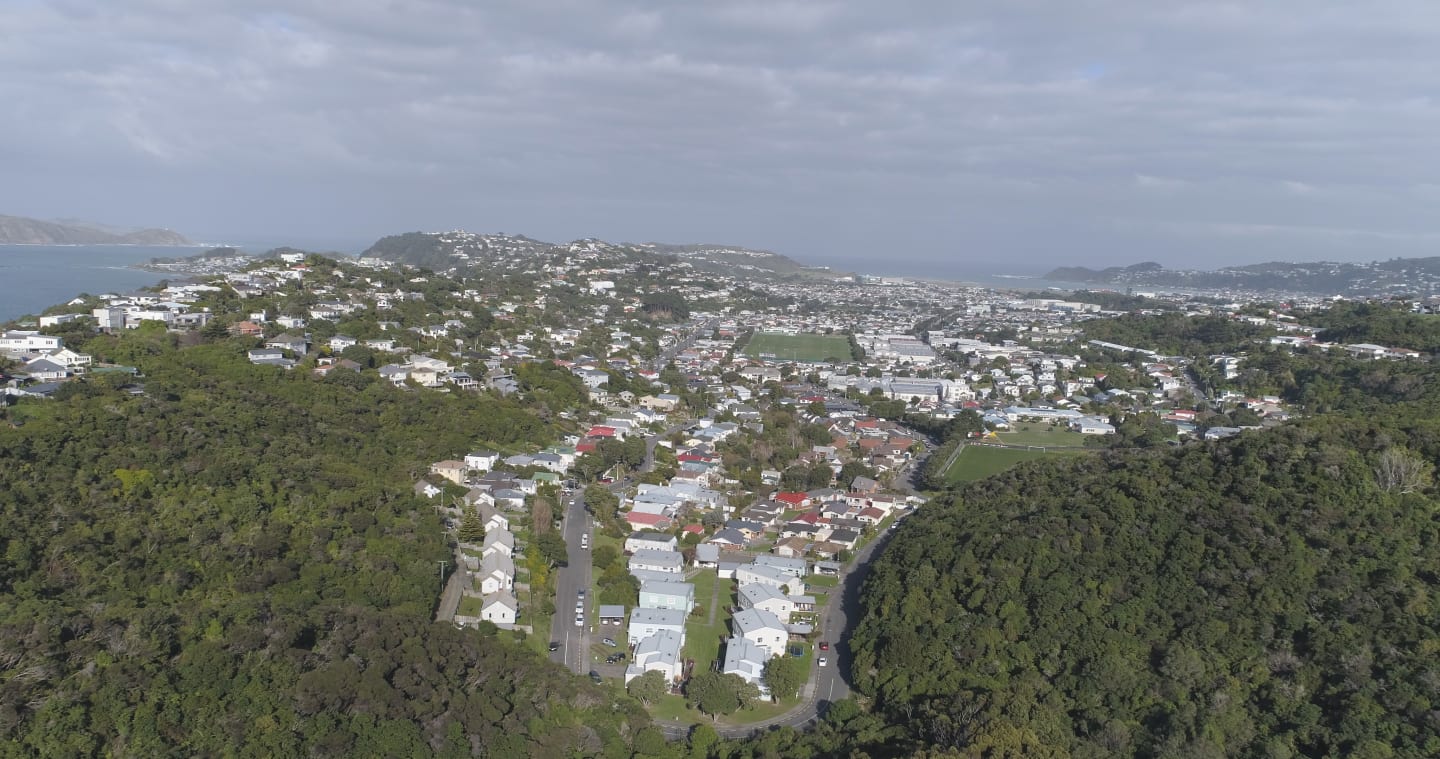
Miramar Peninsula, Wellington, urban landscape-scale predator eradication project Photo: Peter Young / Fisheye Films
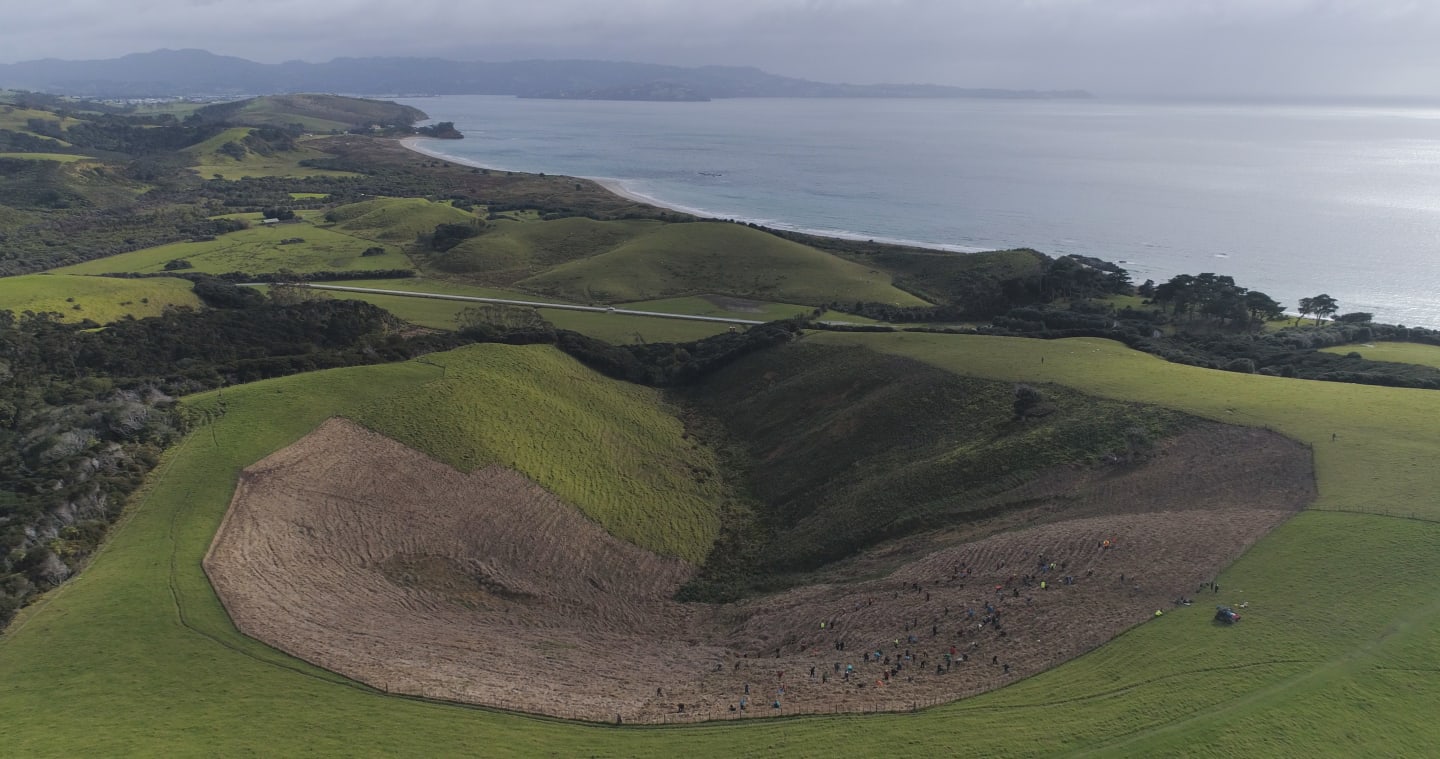
Planting day at Tāwharanui Open Sanctuary, north of Auckland Photo: Peter Young / Fisheye Films
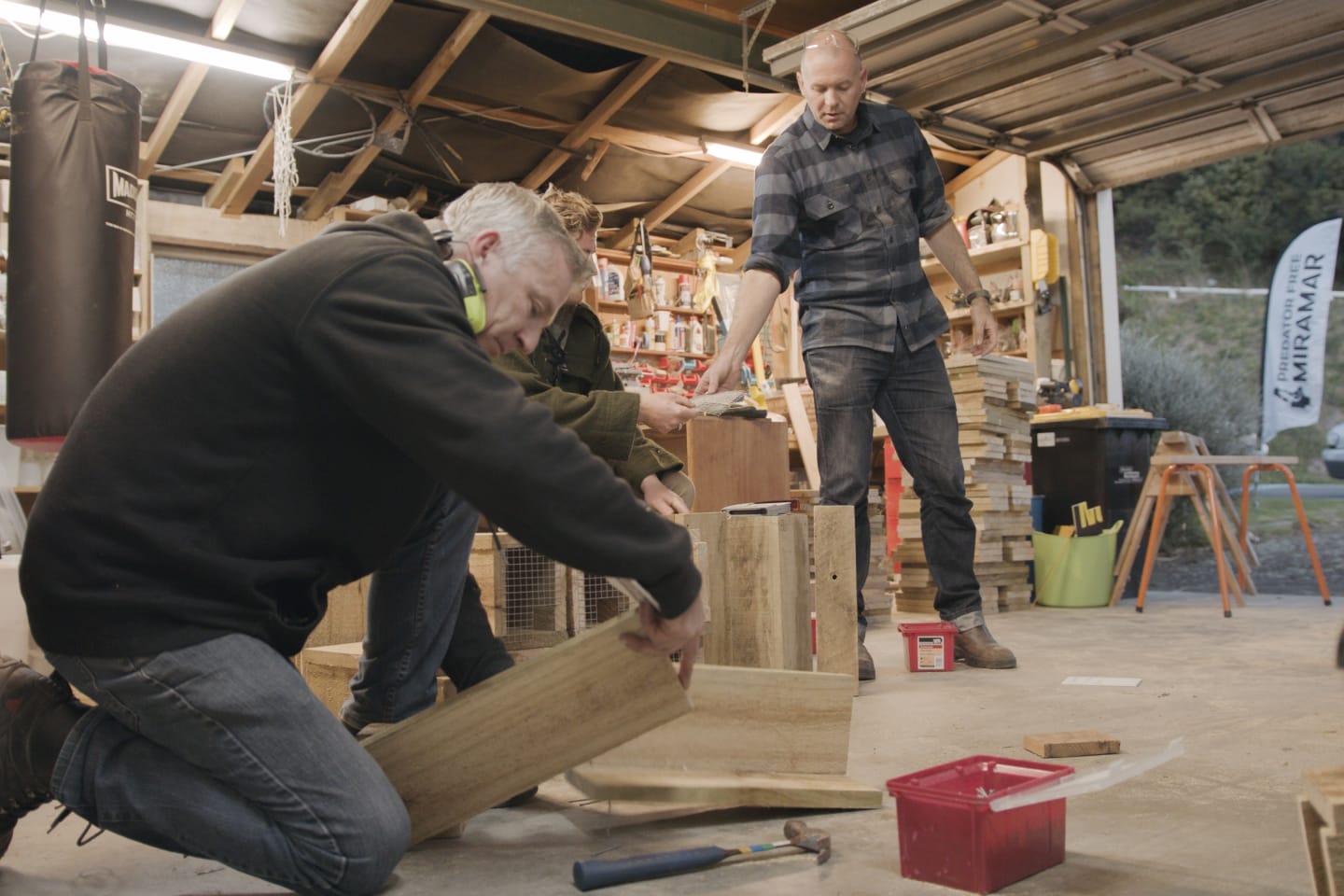
Predator Free Miramar volunteers build traps on regular Sunday gatherings, Wellington Photo: Peter Young / Fisheye Films
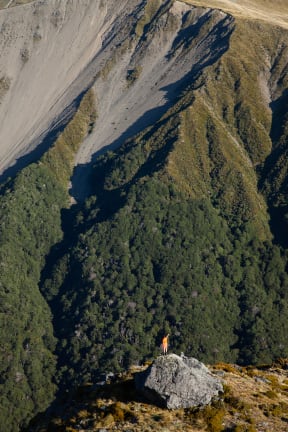
Laura Young attempting to attract Kea with a Kea caller, Doubtful Valley, North Canterbury Photo: Peter Young / Fisheye Films
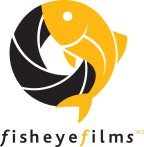
Fisheye Films Photo: Fisheye Films
Fisheye Films is an award-winning media production company with bases in Auckland and Christchurch. Established in 1997 by Peter Young, Fisheye Films has extensive experience in the production of feature documentaries and factual television series, as well as commercials and corporate videos for the national and international market.
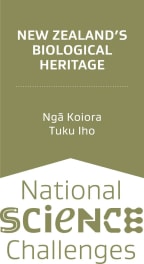
Third Party Funder Photo: Supplied

Third Party Funder Photo: Supplied

Third Party Funder Photo: Supplied

Third Party Funder Photo: Supplied
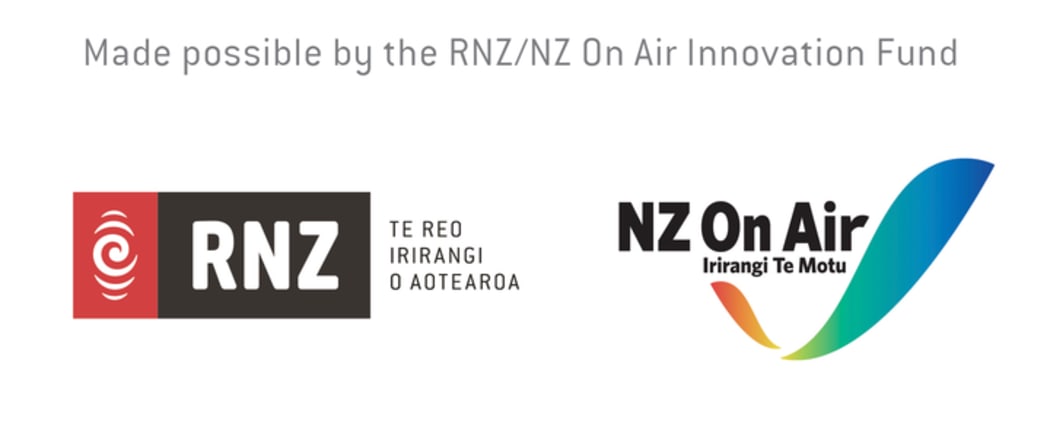
Photo: RNZ/NZ On Air

